Apr 2, 2024 12:59 PM
Saxophonist, Sonic Explorer Casey Benjamin Dies at 45
Casey Benjamin, the alto saxophonist, vocalist, keyboardist and producer who stamped his distinctive sounds on the…
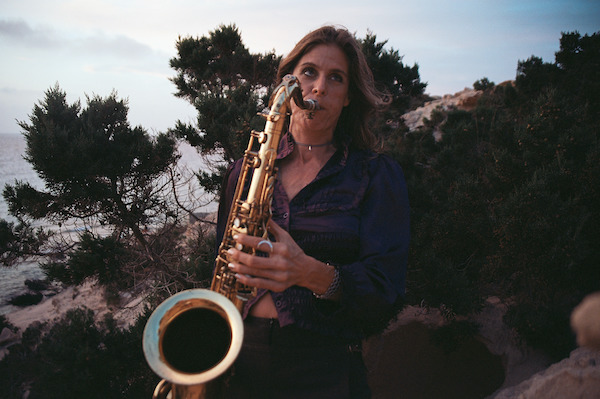
Muriel Grossmann has lived all over Europe and draws influences from music of African origin.
(Photo: Courtesy RRGEMS)Muriel Grossmann characterizes her quintet’s latest album, Reverence, as a spiritual-jazz effort—the sum of her devotion to a lifelong exploration of rhythms, particularly those of African origin.
The album is Grossmann’s attempt to combine what she calls the “reassuring elements of spiritual-jazz” and its antecedents. “Spiritual-jazz has its roots in African music, modal jazz, gospel, blues, free-jazz and Eastern music,” she said. And her explorations of African music and its percussion have helped forge her connection with polyrhythms.
“Every part of the African continent has a very specific sound set and focus points, but the way to play it is very similar to jazz,” said Grossmann. “I was always interested in composing melodies that were part of the polyrhythmic structure, making the band sound like a drum.”
Born in Paris and raised in Vienna, Grossmann traveled to Tunisia and Morocco as a child; her first instrument was flute, which she studied for more than 15 years, before switching to alto and soprano saxophone. She’d been performing in r&b, funk and world-music bands, but when she moved to Barcelona in 2002, her career as a leader and recording artist began in earnest. She’s been living in Ibiza since 2014.
Reverence opens with a wild percussive sound and eventually breaks into the wide-open melody of “Okan Ti Aye.” “Union” conjures Alice Coltane’s meditative moods, juxtaposed with freer horn lines, while “Chase” is a meditation on call-and-response.
“My deeper involvement in spiritual-jazz started in 2011 when I recorded the composition ‘Peaceful River,’ a marker for what I wanted to do next,” said Grossmann. The albums Earth Tones, Natural Time, Momentum and Golden Rule—recorded consecutively from 2015 to 2018—moved her more toward that center. On Reverence, most of the droning backdrops are performed by the bandleader, who largely goes uncredited on everything from Celtic harp to ngoni.
“We use them to color the ambient sound of the quintet or quartet. This time, I use a lot of instruments of African origin,” she said, pointing to balafon, krakebs and kalimba.
Grossmann also mentioned 1974’s Soul Of Africa by Hal Singer and Jef Gilson as “a great spiritual-jazz record with African influence. Hal Singer just turned 100,” she said recalling how Singer’s beginning as a tenor r&b player eventually led him to the roots of rhythm.
“Maybe because I live in Europe or particularly in Spain, I can generally say, ‘I am happy to live in a time where so many are starting to understand the human race as it is, one race, where gender doesn’t matter,” she said, discussing the lack of resistance in her pursuit of African and African American music. “African music is at the root of so much music.”
Reverence is Grossmann’s way of giving thanks for those roots. DB
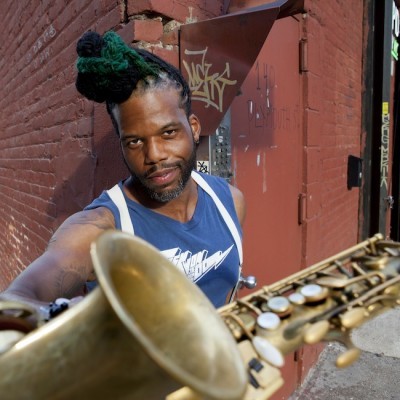
Benjamin possessed a fluid, round sound on the alto saxophone, and he was often most recognizable by the layers of electronic effects that he put onto the instrument.
Apr 2, 2024 12:59 PM
Casey Benjamin, the alto saxophonist, vocalist, keyboardist and producer who stamped his distinctive sounds on the…
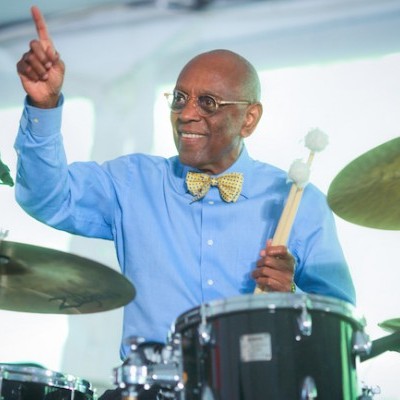
Albert “Tootie” Heath (1935–2024) followed in the tradition of drummer Kenny Clarke, his idol.
Apr 5, 2024 10:28 AM
Albert “Tootie” Heath, a drummer of impeccable taste and time who was the youngest of three jazz-legend brothers…
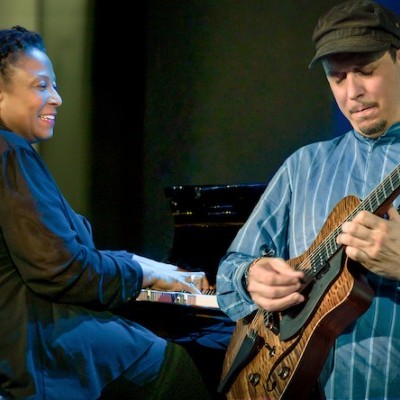
“Both of us are quite grounded in the craft, the tradition and the harmonic sense,” Rosenwinkel said of his experience playing with Allen. “Yet I felt we shared something mystical as well.”
Mar 12, 2024 11:42 AM
“There are a few musicians you hear where, as somebody once said, the molecules in the room change. Geri was one of…
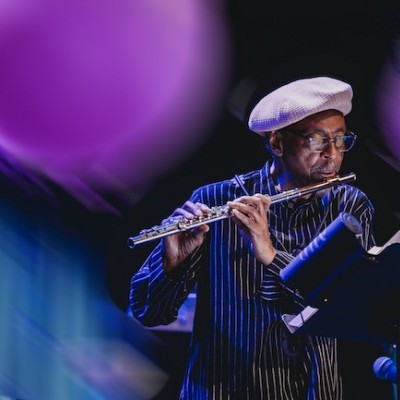
Henry Threadgill performs with Zooid at Big Ears in Knoxville, Tennessee.
Apr 9, 2024 11:30 AM
Big Ears, the annual four-day music celebration that first took place in 2009 in Knoxville, Tennessee, could well be…
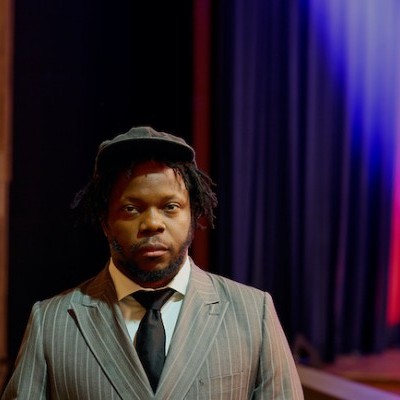
“I’m also at a point in my life where I don’t feel like I have anything to prove, like at all,” Akinmusire says about his art.
Mar 26, 2024 12:45 PM
At the risk of oversimplifying and romanticizing the story, Ambrose Akinmusire came bursting on the jazz scene at the…